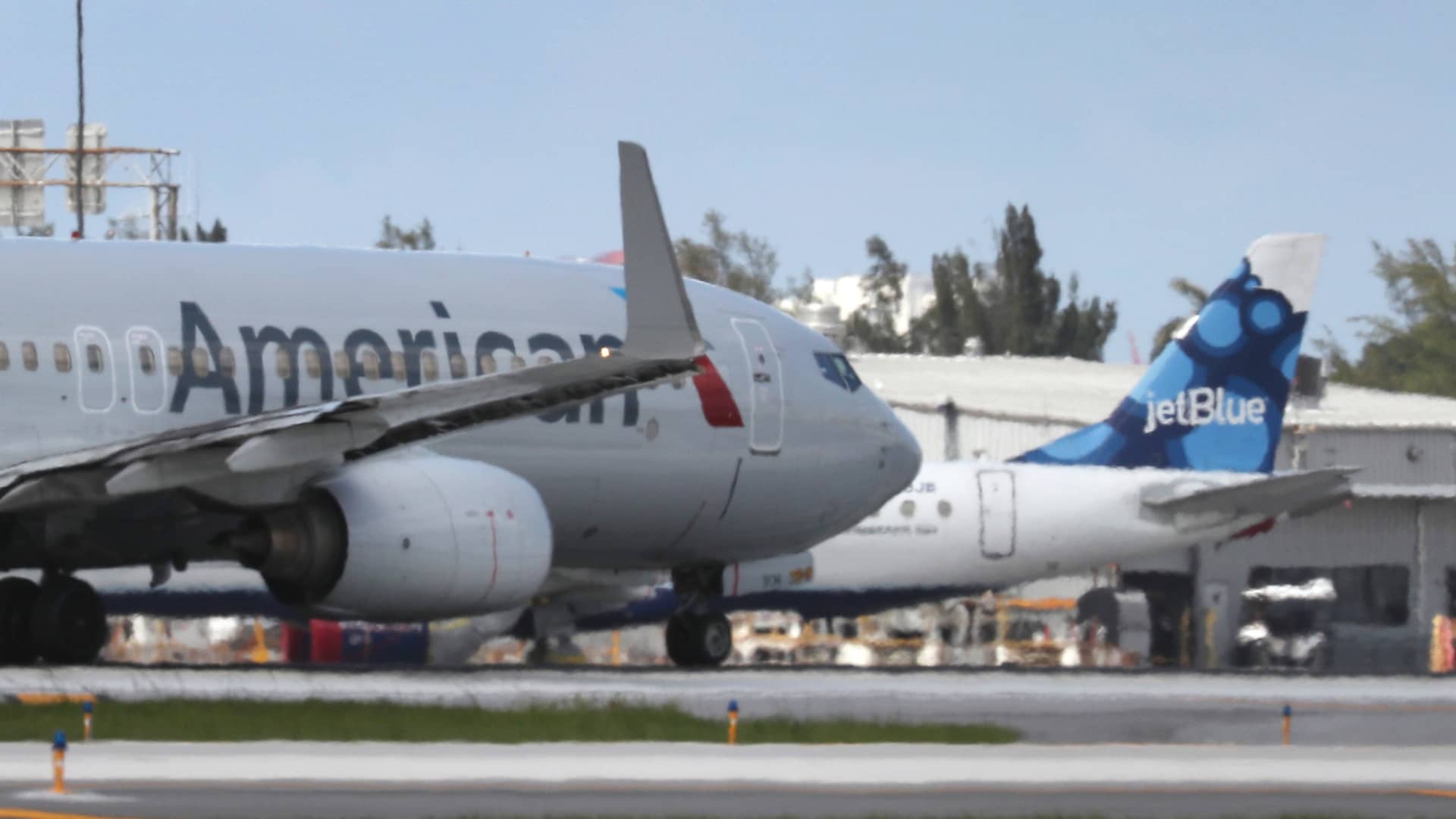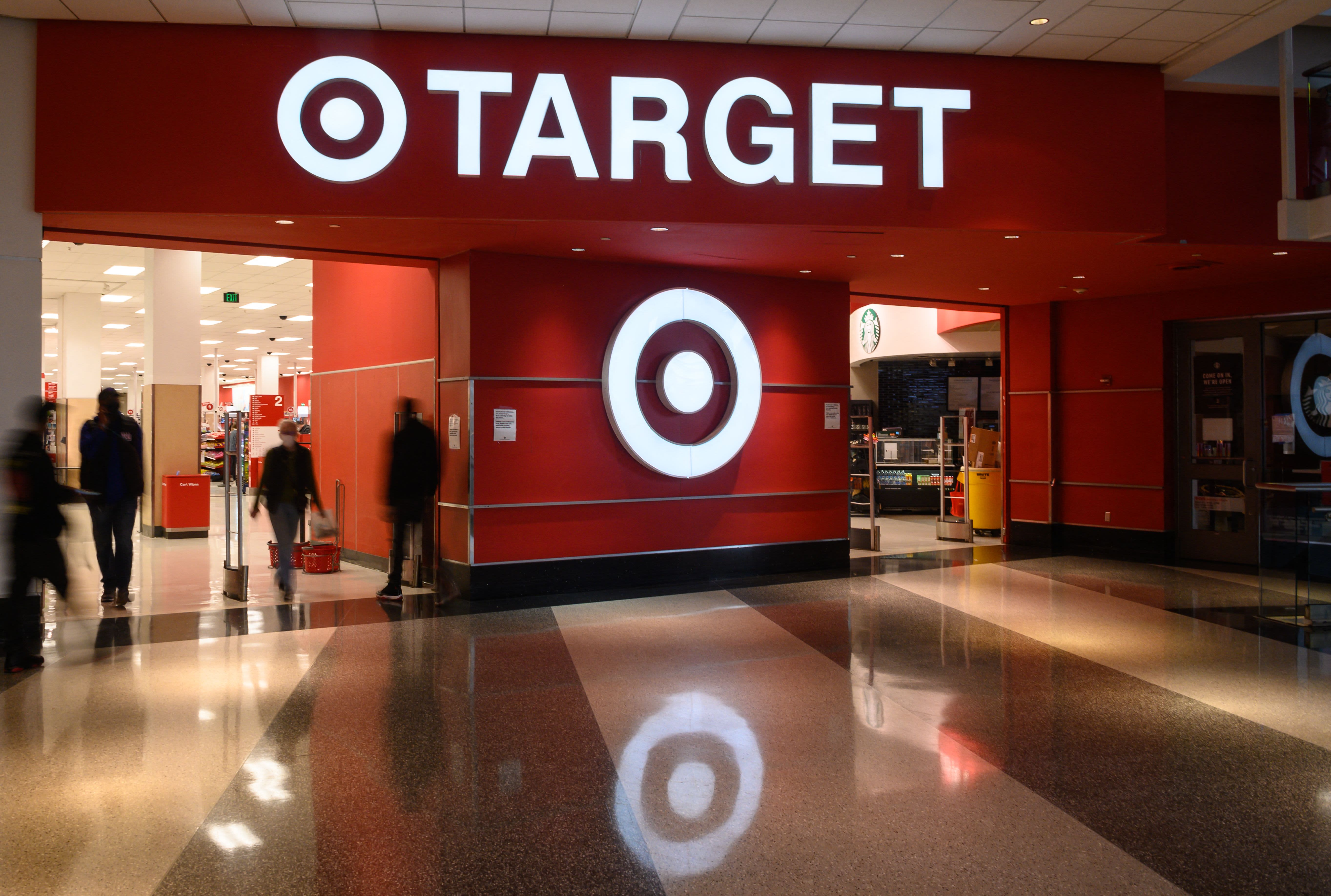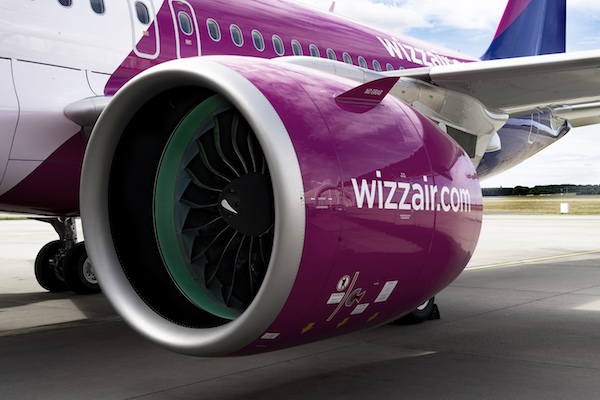Justice Department wins lawsuit to undo JetBlue, American Airlines partnership in the Northeast
Undoing the partnership would be difficult, especially during the peak summer travel season, which airlines have already sold tickets for.

An American Airlines plane takes off near a parked JetBlue plane at the Fort Lauderdale-Hollywood International Airport on July 16, 2020 in Fort Lauderdale, Florida.
Joe Raedle | Getty Images
A federal judge Friday ordered American Airlines and JetBlue Airways to end their partnership in the Northeast, a win for the Justice Department after it sued to undo the alliance arguing it was anti-competitive.
The lawsuit, filed in September 2021, alleged that the airlines' alliance was effectively a merger that would hurt consumers by driving up fares. The trial began a year later in Boston and wrapped up in December.
"Today's decision is a win for Americans who rely on competition between airlines to travel affordably," U.S. Attorney General Merrick Garland said in a statement. "The Justice Department will continue to protect competition and enforce our antitrust laws in the heavily consolidated airline industry and across every industry."
Both airlines expressed disappointment with the decision and said they were considering next steps.
"It makes the two airlines partners, each having a substantial interest in the success of their joint and individual efforts, instead of vigorous, arms-length rivals regularly challenging each other in the marketplace of competition," U.S. District Judge Leo Sorokin said in his ruling.
Fort Worth, Texas-based American Airlines and New York-based JetBlue Airways argued they needed the so-called Northeast Alliance to better compete with other large carriers Delta Air Lines and United Airlines in congested airports in the region.
"Whatever the benefits to American and JetBlue of becoming more powerful — in the northeast generally or in their shared rivalry with Delta — such benefits arise from a naked agreement not to compete with one another," Sorokin wrote. "Such a pact is just the sort of 'unreasonable restraint on trade' the Sherman Act was designed to prevent."
He ordered the airlines to end the partnership 30 days after the ruling. The carriers are likely to challenge the decision. A JetBlue spokeswoman said the carrier is studying the decision and evaluating next steps.
"We are disappointed in the decision," a JetBlue spokeswoman said in a statement. "We made it clear at trial that the Northeast Alliance has been a huge win for customers. Through the NEA, JetBlue has been able to significantly grow in constrained northeast airports, bringing the airline's low fares and great service to more routes than would have been possible otherwise."
"The Court's legal analysis is plainly incorrect and unprecedented for a joint venture like the Northeast Alliance," an American Airlines spokesman said in a statement. "There was no evidence in the record of any consumer harm from the partnership, and there is no legal basis for inferring harm simply from the fact of collaboration."
Undoing the partnership would be difficult, especially during the peak summer travel season for which airlines have already sold tickets.
JetBlue and American are not allowed to coordinate fares under the partnership, which was approved in the final days of the Trump administration in 2021 and has since expanded.
JetBlue had previously warned in a securities filing that a ruling against the NEA "could have an adverse impact on our business, financial condition, and results of operations.
"Additionally, we are incurring costs associated with implementing operational and marketing elements of the NEA, which would not be recoverable if we were required to unwind all or a portion of the NEA," the company said.
The department separately in March filed an antitrust lawsuit to block JetBlue's proposed acquisition of budget carrier Spirit Airlines, arguing the deal would drive up fares, "harming cost-conscious fliers most acutely."
That combination faces a high hurdle for approval by the Biden administration, which has vowed to take a hard line against what it views as anti-competitive deals.

 Tekef
Tekef 































